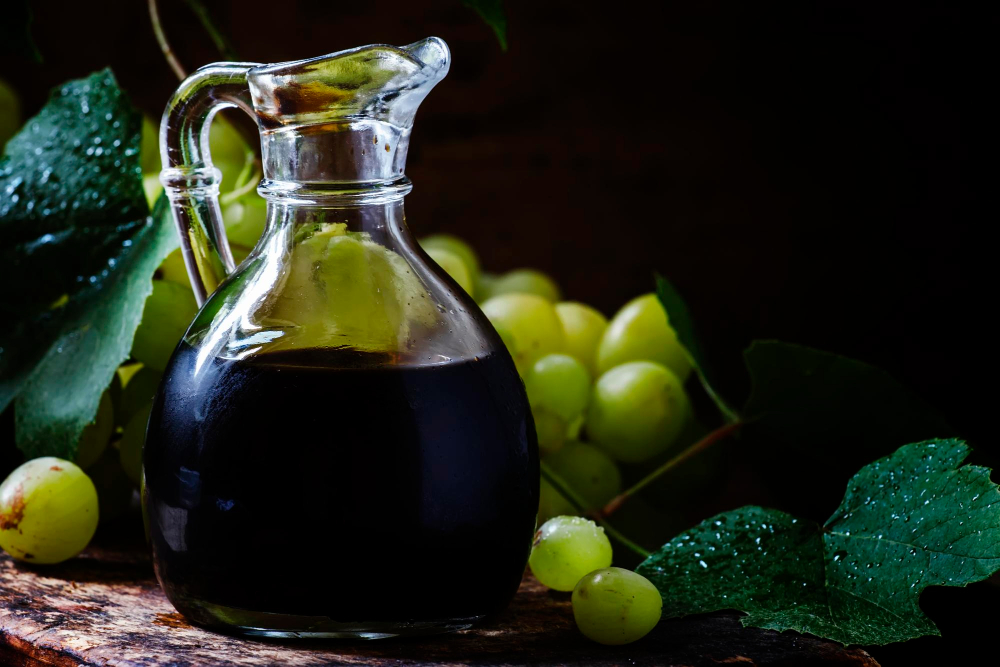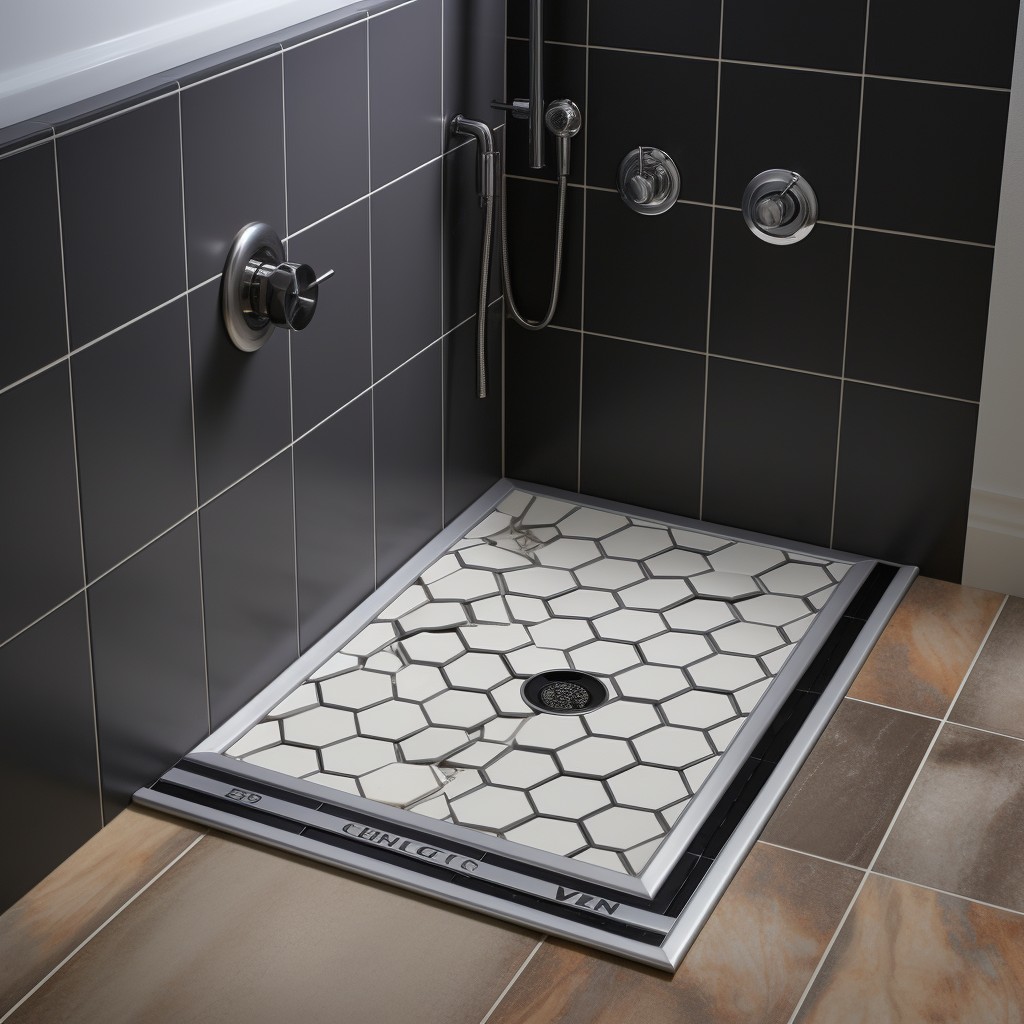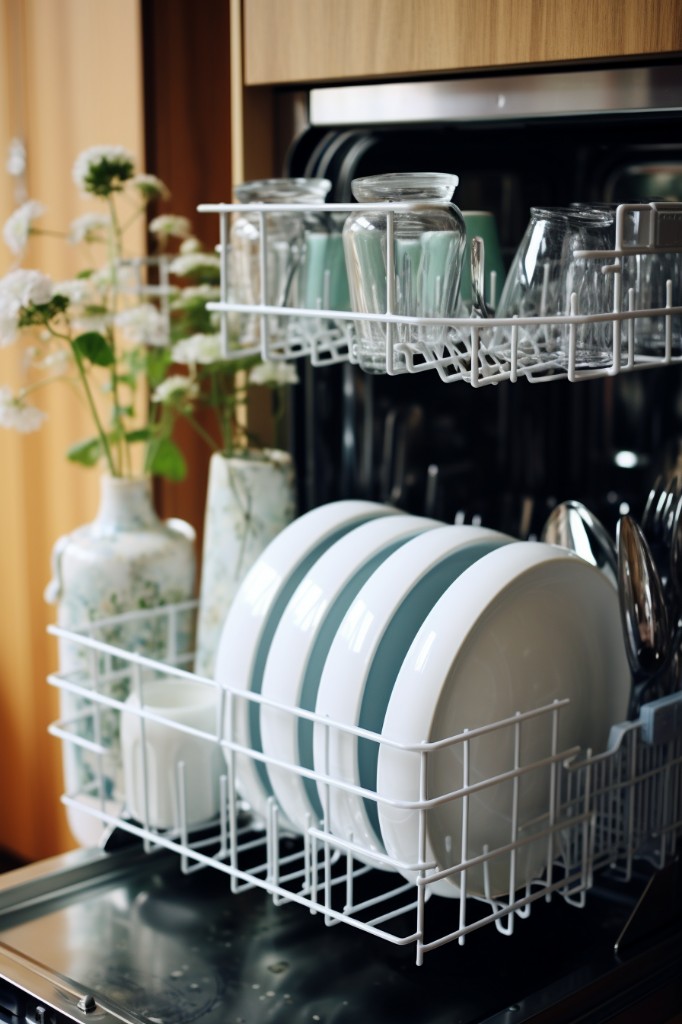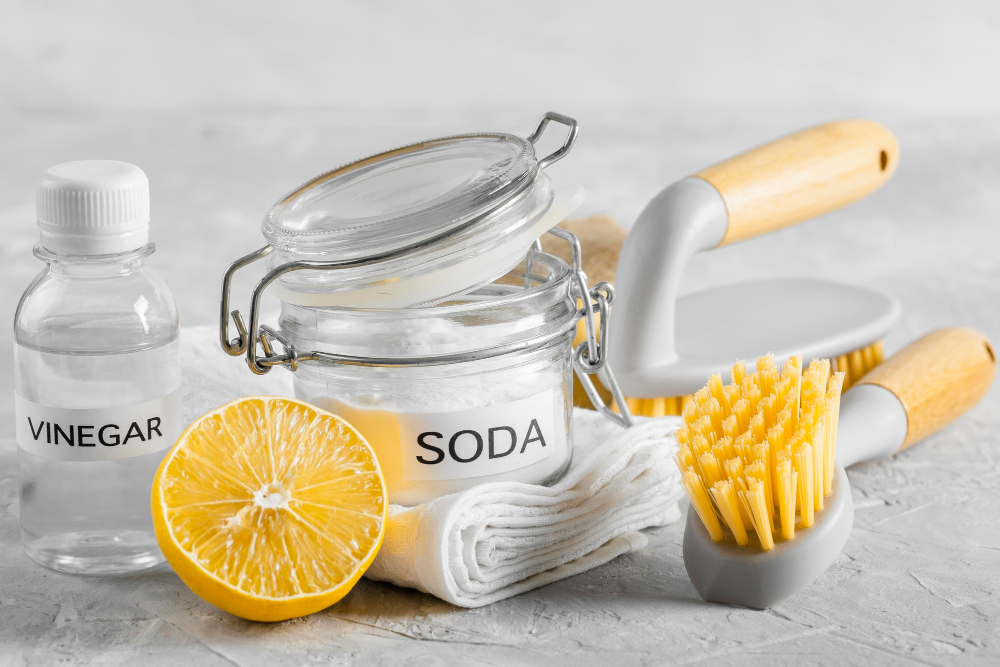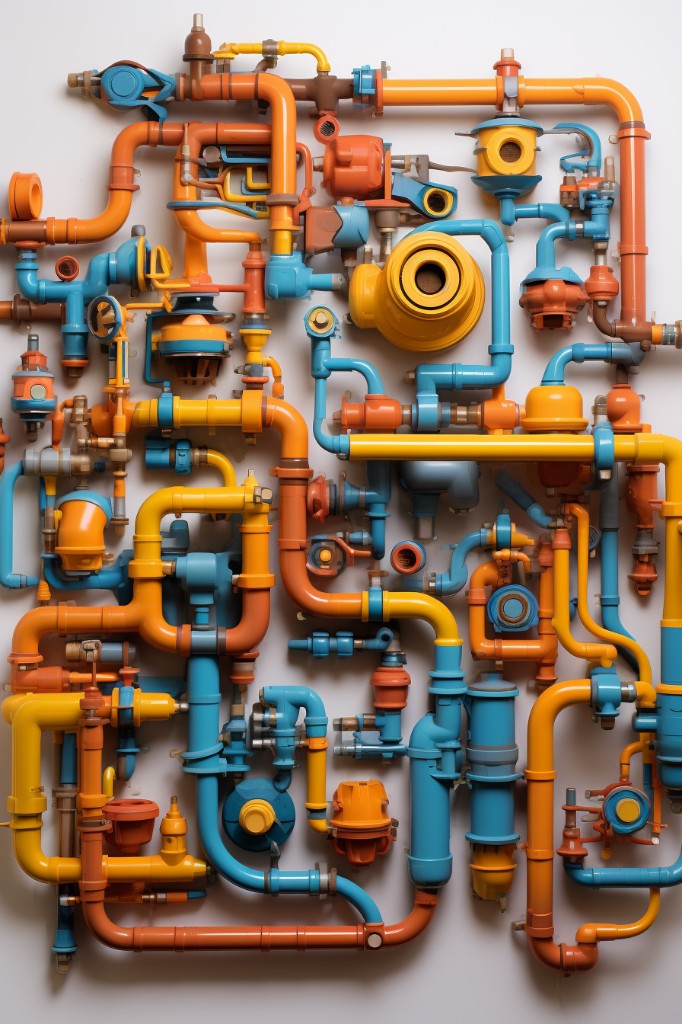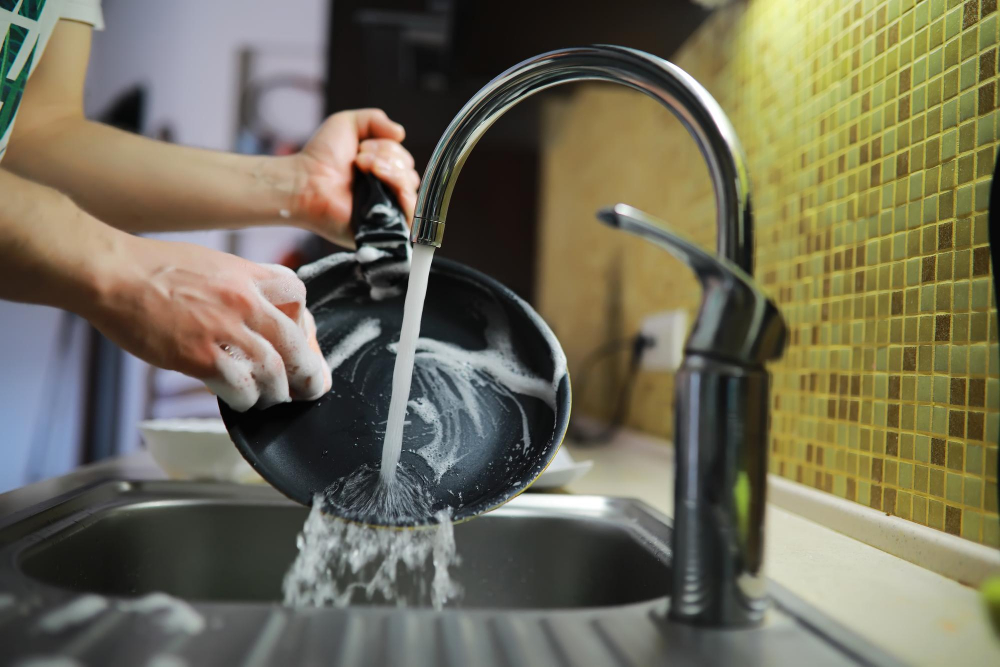[ad_1]
Last updated on
Unleashing the full potential of natural, less harmful alternatives to unclog a drain is an easily achievable task because your own kitchen can be a goldmine for such solutions.
Key takeaways:
- Baking soda and vinegar: Effective fizzy reaction for minor clogs.
- Boiling water: Dissolves organic material and grease.
- Plunger: Creates suction to break up clogs.
- Wire coat hanger: Removes hair and debris beyond plunger reach.
- Enzyme-based cleaners: Safe and sustainable option for organic clogs.
The Best Drano Alternatives
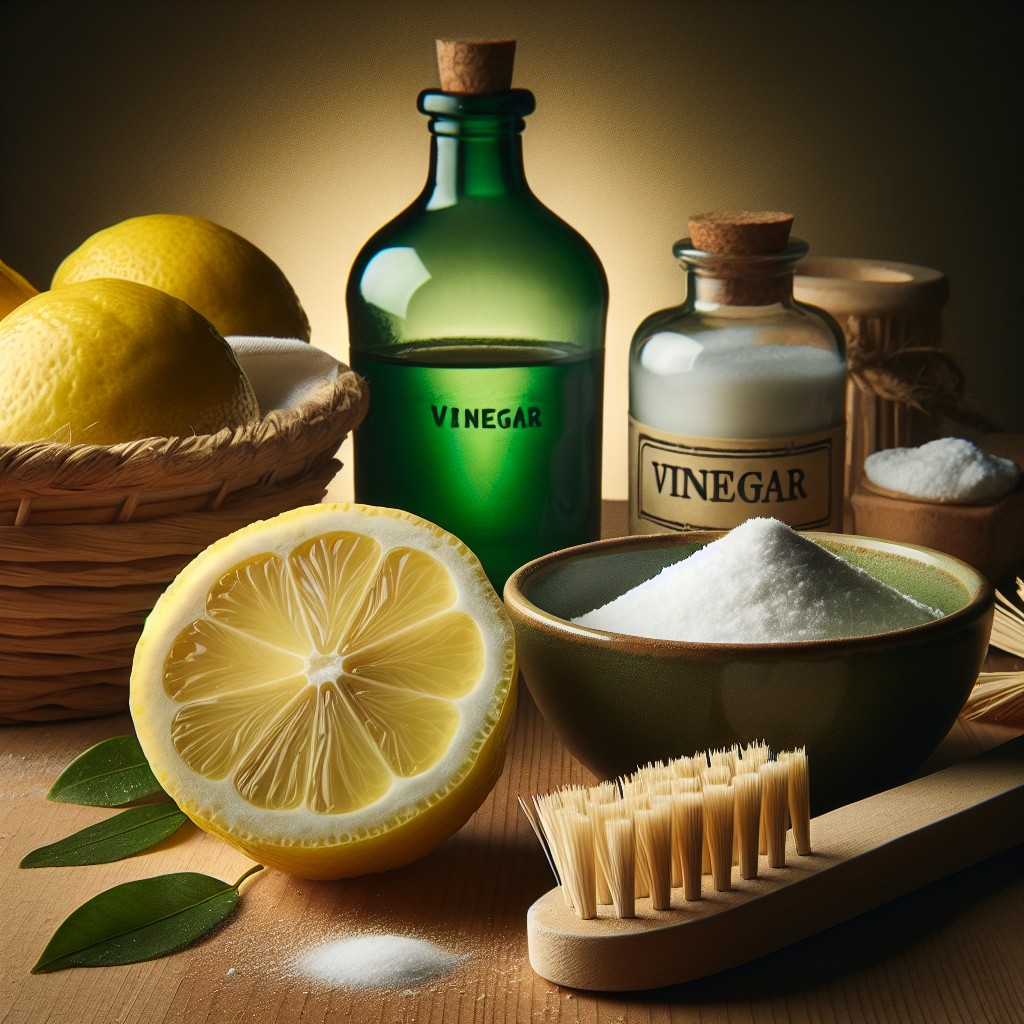
Making the switch from chemical drain cleaners like Drano to more eco-friendly and pipe-safe alternatives can be both beneficial for your plumbing system and the environment. Here are some top choices:
1. Baking Soda and Vinegar: This classic combination generates a fizzy reaction that can often dislodge minor clogs. Pour a pot of boiling water down the drain, followed by half a cup of baking soda and then a mixture of one cup vinegar and one cup of hot water. Cover the drain to let the mixture work its magic, and finish with another pot of boiling water to clear out the residue.
2. Boiling Water: Sometimes, a kettle of boiling water poured directly down the drain can dissolve organic material and grease, clearing minor clogs without the need for added chemicals.
3. Plunger: A good old-fashioned plunger can create enough suction to break up clogs in toilet, bathtub, and sink drains. Ensure you have a tight seal around the drain opening for maximum efficiency. This method is entirely chemical-free and instantly effective in many cases.
4. Wire Coat Hanger: Straighten out a wire hanger and create a small hook at one end to fish out hair and other debris that may be causing a blockage in your drain. It’s a simple tool that can surprisingly access clogs that are beyond the reach of plungers.
5. Enzyme-Based Cleaners: These products use natural bacteria to eat away at organic matter such as hair and food waste. While they may take longer to work, they’re safer for pipes and septic systems and are a sustainable choice.
6. Wet/Dry Vacuum: If you have a wet/dry vacuum, it can be set to vacuum liquids and serve as a powerful tool to suck out clogs when properly sealed over the drain.
7. Professional Snaking or Hydro Jetting: For tougher clogs, consider renting a plumbing snake or calling in professionals to perform hydro jetting, which uses high-pressure water streams to clear out pipes without damaging them.
Remember, preventative maintenance, such as regular flushing with hot water or vinegar, can help keep your drains clear and reduce the need for these alternatives.
Understanding Drano and Its Effects
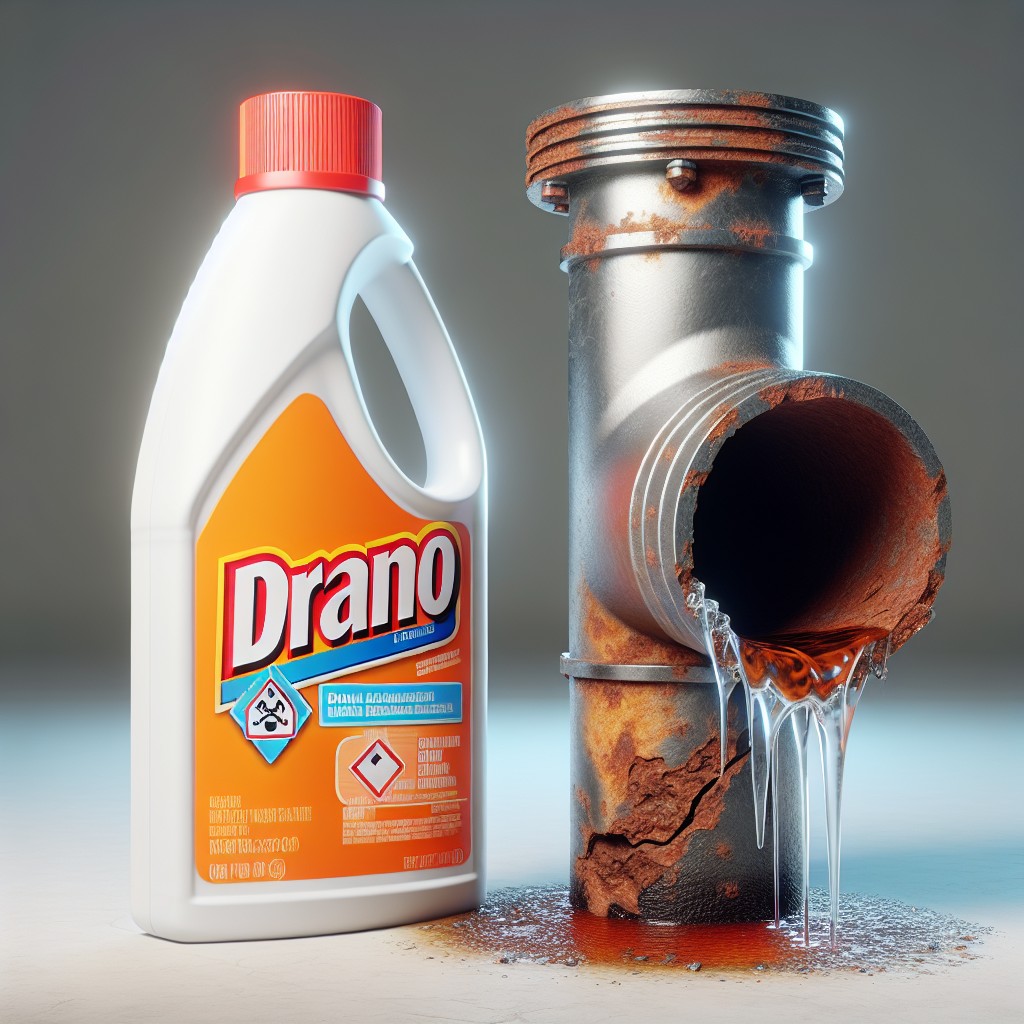
Drano is a commonly used drain cleaner composed of various chemicals intended to dissolve hair, grease, and other common clog substances. Upon entering the drain, the key ingredients such as sodium hydroxide (lye), sodium hypochlorite (bleach), and aluminum react to produce heat, which helps break down clog materials.
This reaction often clears blockages, but not without potential downsides.
If Drano fails to clear the clog, the remaining standing chemical mixture can be hazardous for anyone attempting a physical drain cleaning afterward. Understanding these effects is crucial when considering the use of Drano for plumbing issues.
Why You Should Avoid Drano
Drano’s harsh chemicals can be tough on plumbing systems, gradually corroding metal and PVC pipes. This damage might not be immediate but can lead to costly repairs or complete pipe replacement over time.
Additionally, the powerful reaction that Drano initiates can cause pipes to leak or even burst if there are any weak points. Lastly, safety is a substantial concern; the presence of Drano in the house, especially within reach of children or pets, poses a risk of accidental ingestion or chemical burns.
Chemicals Are Hard On Plumbing
Frequent use of harsh chemicals can take a toll on your pipes. These substances, while designed to dissolve blockages, do not differentiate between clog material and plumbing. Over time, the integrity of pipes may be compromised, especially in older systems or those composed of PVC, which can soften and weaken upon chemical contact.
Metal pipes aren’t exempt either; caustic ingredients may accelerate corrosion, leading to leaks and costly repairs. It’s not just the immediate pipeline that’s affected. Septic systems rely on a delicate balance of bacteria to break down waste, and chemicals can disrupt this ecosystem, leading to further issues and inefficiency.
In essence, when you reach for a heavy-duty clog remover, remember it might do more than simply unblock your drain – it could start a chain reaction that affects the entire durability of your plumbing.
Environmental Impact
Harsh chemicals in products like Drano can upset the delicate balance of the environment. Here’s why:
- Aquatic Toxicity: These chemicals can contaminate waterways, proving toxic to aquatic life.
- Soil Contamination: If they seep into the ground, they can degrade soil quality, affecting plant life and the organisms that depend on that soil.
- Air Quality: Volatile organic compounds (VOCs) in these cleaners can contribute to the deterioration of indoor air quality.
- Water Treatment: Not all components of chemical drain cleaners are easily handled by sewage treatment plants, potentially leading to harmful substances being released into natural water systems.
- Ecosystem Disruption: The symbiotic relationships within ecosystems can be disrupted by the introduction of unnatural chemical compounds.
Choosing eco-friendly alternatives supports the health of our planet and preserves its ecosystems for future generations.
Not Effective On Certain Clogs
Drano can work wonders on some blockages, but it’s not a one-size-fits-all solution. For example, it struggles with:
- Solid Objects: If something solid like a toy or a toothbrush is your clog culprit, chemical cleaners won’t dissolve these.
- Grease Build-ups: Surprisingly, grease clogs don’t always respond well to chemical treatments. The caustic substances can sometimes move the grease further down the line, causing issues elsewhere.
- Clogs Beyond the Trap: The U-shaped pipe under your sink traps debris, preventing deeper clogs, but if the blockage is beyond this point, the Drano might not even reach it.
- Main Sewer Line Clogs: When the main line is clogged, it generally requires professional tools and techniques that go beyond pouring chemicals down the drain.
Consider the nature of the clog before grabbing the Drano; it might save you time and effort to try an alternative or call in a professional.
Potential Pipe Damage
Continuous use of chemical drain cleaners like Drano can lead to the gradual deterioration of your pipes. The harsh substances designed to dissolve clogs can also eat away at the material of your pipes, especially if they are older or made of metal.
Over time, this may result in leaks, which could cause significant water damage to your home and may require costly repairs. It’s crucial to consider the long-term health of your plumbing system and opt for gentler, more pipe-friendly alternatives when dealing with blockages.
Expensive Over Time
Regular use of chemical drain cleaners like Drano can put a steady strain on your wallet. These products offer a quick fix, but they don’t address underlying plumbing issues that cause frequent blockages. As a result, you may find yourself repeatedly purchasing these solutions, with costs adding up over time.
Financially savvy individuals often turn to more cost-effective, long-term strategies for maintaining their pipes. Investing in a good plunger, a drain snake, or even enzyme-based drain cleaners could save you a considerable amount of money. Usage of DIY methods like baking soda and vinegar not only clears out minor clogs but also costs pennies compared to commercial chemical products.
By adopting these alternative practices, you not only protect your pipes but also your pocketbook, ensuring a clog-free and financially sound household.
Safety Concerns for Children and Pets
Keeping your home safe for the little ones and furry family members often means reconsidering the chemicals you use. Traditional drain cleaners like Drano contain harsh substances that can linger on surfaces and in the air, posing risks if ingested or inhaled. These products usually advise keeping the area well-ventilated and to avoid skin or eye contact, but accidents can happen, particularly with curious toddlers and pets.
To mitigate these risks, consider using homemade solutions or physically removing blockages. Baking soda and vinegar, for example, are common pantry items that are much less harmful if accidentally ingested. Meanwhile, physical tools like a plunger or a wire coat hanger offer a mechanical solution without the chemical danger. Always store any cleaning products, homemade or not, out of reach to maintain a safe environment.
Drano Alternatives
The search for Drano substitutes can lead you to a variety of easy, safer, and often more effective solutions for clearing your drains without the harsh effects of chemicals.
Baking Soda and White Vinegar: This tried-and-true combo produces a fizzing action that can break down gunk and grease. Pour half a cup of baking soda down the drain, followed by half a cup of white vinegar, and after letting it sit for an hour, flush with boiling water.
Soap and Hot Water: Sometimes grease clogs can be dissolved with detergent. A few tablespoons of dish soap poured down the drain followed by a large pot of boiling water can cut through the grease and may clear the clog.
Plunger: A plunger isn’t just for toilets. Use it on your sink or tub drain to create a vacuum effect, which can loosen up a clog without any chemicals at all.
Wire Coat Hanger: Unwind a wire hanger to create a long hook that can reach deep into the drain to fish out hair and other debris that may be causing a blockage.
Enzyme-Based Drain Cleaners: These are more eco-friendly and use natural bacteria to eat away at organic matter in the pipes without damaging the plumbing.
Wet and Dry Vacuum: If you own one, setting it to wet mode can create enough suction to pull the clog out of the pipe.
Hydro Jetting: For stubborn, difficult-to-remove clogs, hydro jetting uses high-pressure water to blast through blockages without the use of chemicals.
Each alternative approach offers a different mechanism for clearing blockages; some break down the clog, others physically remove it, while some use pressure or natural biological action. These methods can often be more appropriate, depending on the nature of the clog and the type of pipes you have.
Baking Soda and White Vinegar
A dynamic duo for unclogging drains, baking soda and white vinegar are safe, natural ingredients that most have in their pantry. To effectively clear your pipes, follow these simple steps:
1. Begin by pouring a pot of boiling water down the drain.
2. Quickly follow it with half a cup of baking soda.
3. Let the baking soda sit for a few minutes.
4. Now, mix one cup of vinegar with one cup of hot water and pour it over the baking soda.
5. Cover the drain with a plug and wait 5-10 minutes for the chemical reaction to break down the gunk and grime.
6. Finish by flushing with another pot of boiling water to clean out any remaining debris.
The magic happens when the acidic vinegar reacts with the alkaline baking soda, creating a fizzing action that helps dislodge the blockage. Regular use of this technique can help maintain clear pipes and prevent the buildup of clogs.
Soap and Hot Water
Unblocking minor clogs doesn’t always require complex solutions. Often, the greasy residue causing your sink to drain slowly can be melted away with a combination of hot water and liquid soap. This method is simple:
- Boil a kettle or pot of water.
- Squirt a generous amount of dishwashing liquid directly into the drain.
- Carefully pour the boiling water into the drain, a little at a time, to mix with the soap.
- The soap acts as a lubricant, breaking down grease and allowing the hot water to flush it away.
Remember to be cautious when handling boiling water to avoid burns. This approach is gentle on pipes and can be used frequently as preventive maintenance for your drains.
Plunger
A plunger can often clear clogs without the need for chemicals. Select the appropriate plunger – a cup plunger for sinks and a flange plunger for toilets.
For best results, fill the fixture enough to cover the plunger’s head, ensuring a tight seal. Thrust the plunger up and down vigorously, maintaining the seal. This creates pressure that can dislodge blockages.
This method is eco-friendly, inexpensive, and worth trying before resorting to other means.
Wire Coat Hanger
Transforming a humble wire coat hanger into a drain-clearing tool is a simple yet effective hack.
First, straighten out the hanger, but leave the hook intact for gripping and fishing out debris.
Gently insert the straightened end into the drain, twisting and pushing lightly to navigate the curves of the pipes.
As you encounter resistance, that’s likely the clog.
Use a probing and lifting motion to loosen and extract the gunk.
Be cautious not to push the blockage further in.
Patience is key—the goal is to latch onto the obstruction and pull it out, clearing the way for water to flow smoothly again.
This method works well for clogs caused by hair and other fibrous materials.
Remember, always shield your hands with gloves for protection during this task.
Enzyme-Based Drain Cleaners
Enzyme-based cleaners represent a biologically friendly option that harnesses natural bacteria to digest organic material blocking pipes. These cleaners work best as a preventative measure rather than for acute clogs, as they require time to break down debris.
Regular use keeps pipes clear without the harsh effects of chemicals. They are safe for all types of plumbing and septic systems, making them an excellent choice for environmentally conscious households. In addition, they’re non-toxic, which means they’re safe around children and pets.
Remember, while effective for organic matter like hair and grease, they are not suitable for inorganic obstructions, such as plastic or metal fragments.
Wet and Dry Vacuum
Harnessing the power of a wet and dry vacuum can offer a robust solution for clearing clogged drains. These versatile tools create a powerful suction to dislodge blockages:
- Ensure the vacuum is set to liquid mode to prevent damage to the unit.
- Create a tight seal over the drain using the vacuum’s nozzle; for sink drains, consider using a plunger head attachment.
- Turn on the vacuum, and the suction force will pull the clog out.
- For optimal effect, intermittently pause the suction and then reapply it to break up stubborn blockages.
- It’s a more mechanical approach compared to chemical cleaners and eliminates the need for potentially harmful substances.
Remember, persistent or recurrent clogs may require professional attention.
Hydro Jetting
Hydro jetting is a powerful and efficient method for clearing clogs and maintaining clean pipes. This technique involves using high-pressure water streams that can reach up to 35,000 psi to blast away blockages and buildup.
Here are some key points about hydro jetting:
- Effectiveness: The pressure from the water is sufficient to remove even the most stubborn clogs, including tree roots and mineral deposits.
- Thorough Cleaning: Not only does it clear clogs, it also thoroughly cleans the interior walls of pipes, washing away grease, soap scum, and other debris.
- Eco-friendly: This method uses only water, making it an environmentally friendly choice as it avoids harsh chemicals.
- Professional Equipment: Due to the high pressures involved, hydro jetting equipment should be operated by a professional plumber to ensure safety and effectiveness.
- Preventative Maintenance: Regular hydro jetting can prevent future clogs and extend the life of your plumbing by removing potential clog sources before they cause problems.
Tips From Plumbing Experts
Maintain your drains with consistency to prevent clogs from forming in the first place. Experts suggest using hot water to flush your drains weekly, which can help dissolve minor build-ups. To keep your kitchen sink clear, avoid pouring grease down the drain and use a strainer to catch food particles.
If you notice slow draining, act quickly with gentle solutions like baking soda and vinegar before the problem escalates. Furthermore, be cautious with what gets flushed down toilets; only human waste and toilet paper should go down, as even “flushable” wipes can cause blockages.
For bathroom sinks and showers, regularly remove hair and soap scum, which are primary culprits for clogs. Simple tools such as drain snakes or hair-catching accessories can be placed over the drain to trap debris before it causes an issue.
Lastly, be familiar with your home’s plumbing system. Knowing the location of the main clean-out line can save time and effort should a serious clog occur. This proactive approach will help prevent the kind of obstructions that often lead homeowners to reach for harsh chemical solutions.
Schedule Regular Drain Cleaning Services
Maintaining a regular drain cleaning schedule can save you from the hassle and costs associated with severe clogs. Seasonal or bi-annual servicing ensures your pipes stay clear, which can improve drainage efficiency and extend the lifespan of your plumbing system.
Professionals use specialized tools like high-pressure water jets to remove any build-up without damaging your pipes. This preemptive approach allows you to avoid emergency situations, giving you peace of mind and keeping your water flowing smoothly.
Additionally, plumbers can spot potential issues early, preventing larger problems down the line. Prioritize this practice; it’s a savvy investment in your home’s plumbing health.
When to Call a Professional Plumber
Tackling a clogged drain can sometimes be a DIY job, but there are instances where a professional touch is essential. If you’ve tried multiple methods without success, it may be time to call in an expert.
Persistent bad odors, water backing up in other drains when using plumbing fixtures, or signs of water damage, such as leaks or stains on walls or ceilings, indicate a potentially serious problem. Additionally, repeated clogs in the same drain or slow drainage throughout the house might suggest a deeper issue within your sewer line.
Lastly, if you encounter a situation where sewage is backing up into your home, it’s crucial to seek professional help immediately to avoid health hazards and further damage. Recognizing when the problem is beyond your expertise can save you time, money, and the hassle of exacerbating the problem.
Recap
Liked this article? Here’s what you can read next:
[ad_2]
Source link


